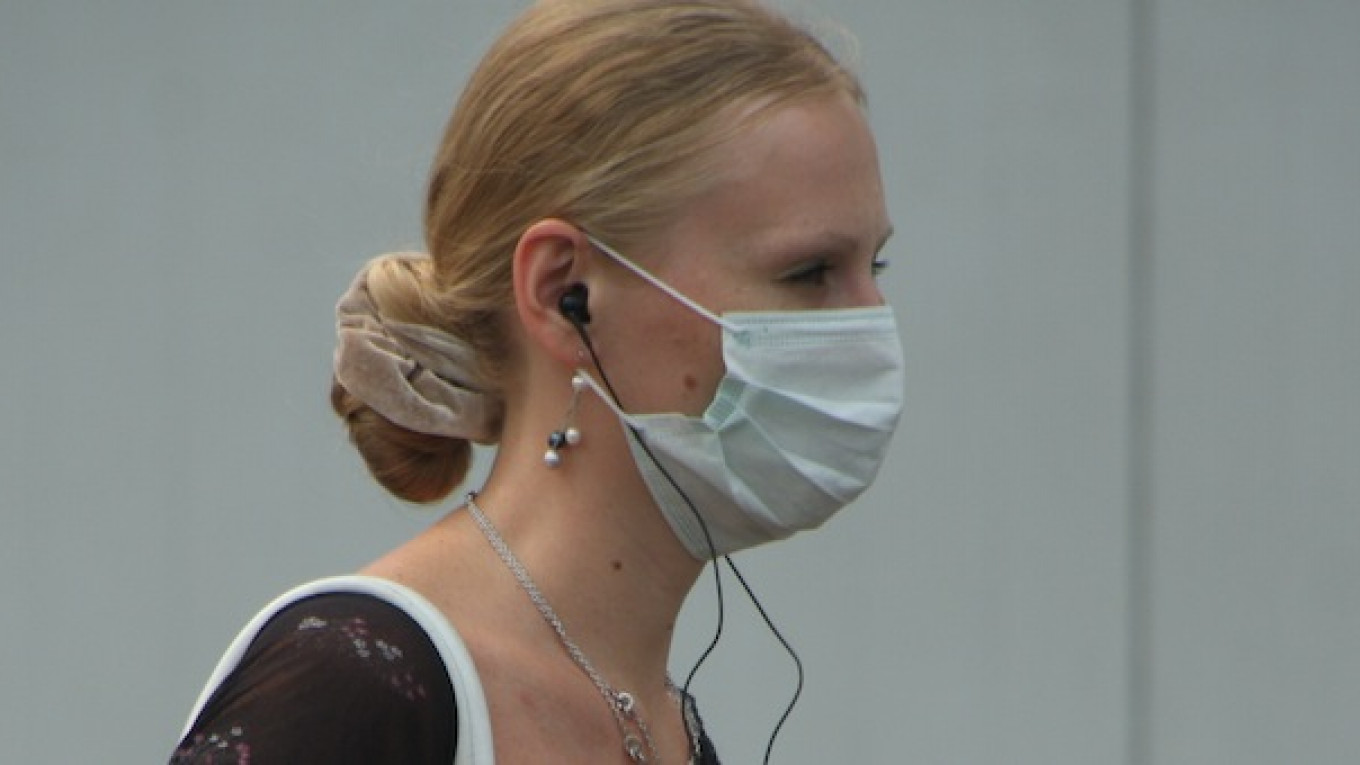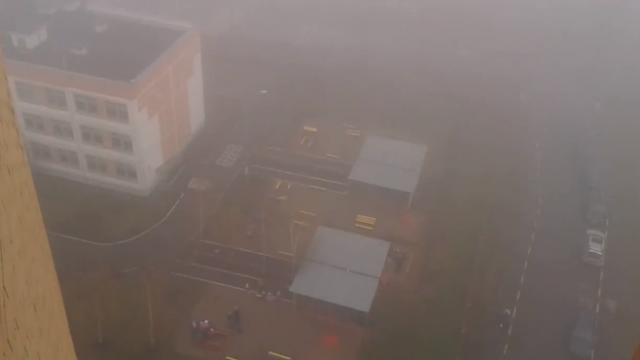Days after Muscovites complained about a strong smell of sulphur wafting through the city, municipal officials have advised residents to don masks to protect themselves from impurities spewed out from burning woodland in the northeast of the capital.
"In connection to the predicted adverse weather conditions, which will lead to accumulation of harmful impurities in the surface layer of the city's air, Moscow is expected to experience a worsening in its ecological situation," the regional branch of the Emergency Situations Ministry said Friday in an online statement.
The ministry's statement comes just days after panic threatened to erupt in the city over mysterious fumes that many residents said smelled like rotten eggs and some said caused headaches and dizzyness.
While Russia's Emergency Ministry pinned the eggy stench on a hydrogen sulphide spill, Russia's natural resources watchdog said the chemical in question was isopropyl benzene. Both agencies linked the smell to an accident at a Gazprom oil refinery in the south of Moscow, though the company later denied any such accident had taken place.
No deaths or mass poisonings in connection to the incident were reported as of Friday.
In a statement on its website, the regional branch of the Emergency Situations Ministry tied the appearance of the new fumes with the controlled burning of woodland in the Moscow region, making no mention of the earlier incident.
The burning took place Thursday at three separate locations in the Moscow region, the ministry said in its statement, adding a northeasterly wind was "responsible for [carrying] the smell of burning and a slight haze in certain parts of the capital."
But while Russia's Emergency Situations Ministry attributed the latest air pollution to burning woodland, the German Embassy's staff doctor issued a notice to the embassy's employees suggesting something else entirely, saying “independent observers suggest that industrial companies are increasingly releasing emissions.”
In the doctor's statement, employees were warned to avoid going outdoors unnecessarily over the weekend.
As a result of the expected deterioration in weather conditions, Muscovites have been advised to limit the amount of time that they spend outside and ensure that all doors and windows are closed.
The ministry also advised people to wear face masks to limit exposure to the outside air and for those with allergies to take antihistamines. It added that the "worsening environmental conditions" did not pose any immediate threat to human life.
For some Muscovites, the smell of burning wood may recall an incident in August 2010 that saw large parts of the city blanketed in smoke as forests and peat bogs surrounding the city were engulfed in flames during a severe heat wave.
In the days that followed, the level of air pollution in the city shot to up to three times the maximum recommended levels and the death rate in the capital tripled, forcing embassies to evacuate staff and leading to travel warnings being issued.
A Message from The Moscow Times:
Dear readers,
We are facing unprecedented challenges. Russia's Prosecutor General's Office has designated The Moscow Times as an "undesirable" organization, criminalizing our work and putting our staff at risk of prosecution. This follows our earlier unjust labeling as a "foreign agent."
These actions are direct attempts to silence independent journalism in Russia. The authorities claim our work "discredits the decisions of the Russian leadership." We see things differently: we strive to provide accurate, unbiased reporting on Russia.
We, the journalists of The Moscow Times, refuse to be silenced. But to continue our work, we need your help.
Your support, no matter how small, makes a world of difference. If you can, please support us monthly starting from just $2. It's quick to set up, and every contribution makes a significant impact.
By supporting The Moscow Times, you're defending open, independent journalism in the face of repression. Thank you for standing with us.
Remind me later.






